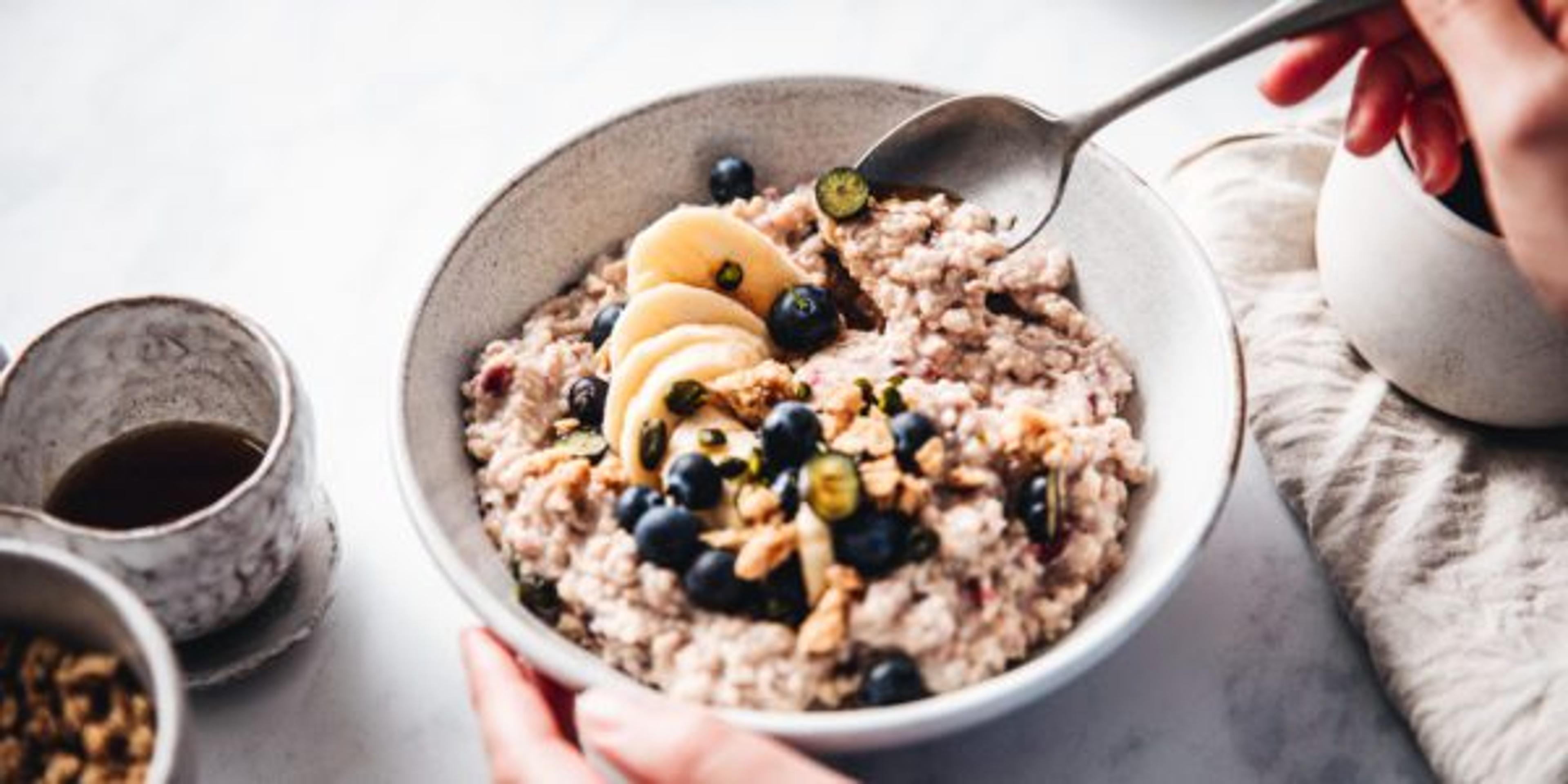High-Protein Breakfast Ideas Without Eggs
Shandra Martinez
| 3 min read

Conversations about ways to increase protein intake are everywhere you look on the nutrition scene these days. Adults are using powdered protein formulas to whip up shakes for breakfast and lunch. Boxes of protein bars and snacks are flying off store shelves and into shopping carts. And teen athletes are adding packaged whey powder into drinks and meals for a protein boost. But what if you’re looking to fix high-protein breakfasts at home – and don’t want to include eggs? You’ve still got lots of tasty choices.
While eggs are often a top protein choice when talking about breakfast dishes, not everyone likes the taste or consistency. Others might just be egged out – tired of having them poached, scrambled, fried or hard-boiled and in search of a new way to get their protein fix.
How much protein do adults need? Searching for delicious sources of early-morning protein brings us to the question of how many grams of protein people need to achieve a healthy diet. Part of that answer is tied to activity level and body weight, according to the Mayo Clinic. For example, if an adult leads a fairly sedentary lifestyle and weighs about 165 pounds, that person should eat about 60 grams of protein each day. People who exercise regularly – or anyone over the age of 50 who might be losing muscle mass due to age – should try to eat about 90 grams of protein each day.
High-protein breakfast ideas. There really are a lot of creative ways to start your day off with a protein kick. While protein bars and powdered shake mixes are one option, using good protein sources from whole foods is a healthier way to add up your grams for the day. We’re going to share some suggestions featuring a handful of high-protein ingredients. And there’s not an egg in sight.
Nuts
- Sprinkle a good-sized handful of almonds, walnuts or other favorite nuts on top of granola or cooked oatmeal.
- Spread peanut butter or another nut butter on a banana or apple slices.
- Peanut butter and jam sandwich on toasted whole-grain bread.
Lean meats, fish and beans
- Sliced turkey on an open-faced bagel or English muffin.
- Boneless, skinless chicken tucked into a pita or wrap sandwich, with a little cheese.
- Chicken, shredded cheese and salsa for a breakfast burrito.
- A tuna sandwich served in a wrap or on whole-wheat toast.
- Smoked fish or cooked salmon, served atop a bagel or crackers spread with a little herbed cream cheese or soft feta.
- Make a breakfast bowl with brown rice, black beans, a little cheese and a drizzle of your favorite sauce.
- Cooked bean and cheese quesadillas.
Cheese and Yogurt
- Make a breakfast charcuterie-style plate with chunks or cubes of cheese, fruit and nuts.
- A dish of low-fat cottage cheese. Make it sweet with a sliced fruit topping, or savory paired with fresh tomatoes and sliced pickles.
- Stir your favorite jam into Greek yogurt. Or top it with fruit and nuts for a homemade parfait.
Soups
In the colder months, switch to a hearty warm soup for breakfast. A lentil or bean-based soup will keep you full all morning. Or try a vegetable soup with chunks of boneless chicken.
Related:
Photo credit: Getty Images





